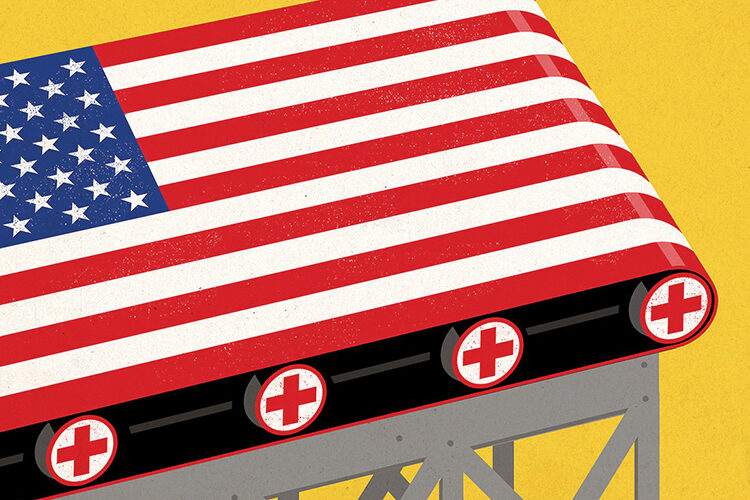A plan to stop hoarding through resource sharing
N95 masks, ventilators, and medical gowns — equipment that most of us had never given a second thought — have become a source of concern during the pandemic because of widespread shortages. It’s a problem that Isla Globus-Harris, an assistant professor of economics who studies inefficiencies in markets, decided to tackle.
Globus-Harris teamed up with Elizabeth Hastings Roer, an associate economist at the RAND Corp., to propose a method of resource sharing in which areas that are so-called “hot spots” during a pandemic would receive supplies from “cool spots” in exchange for a guarantee that they would be returned when needed. The economists’ objective was to sketch out a plan that the federal government or another entity could put in place to discourage institutions from hoarding supplies. Their work was published in RAND’s journal Perspectives in April.
“We have seen the federal government appropriating supplies that states or hospitals have ordered, and that can create a perverse incentive to hide supplies,” Globus-Harris says. Instead, she and her coauthor propose that the federal government create a marketplace where states that are “cool spots” share supplies that they don’t need at the moment, with the federal government serving as a guarantor and providing those supplies if a state failed to keep its pledge to return them.
The plan would need to be “very transparent, and it would have to be in conjunction with an increase in the manufacturing of these resources. If people know more supplies are coming soon, that will increase their trust,” Globus-Harris says. It would also draw out hidden supplies, such as stockpiles by companies not involved in health care. (Facebook was one of several companies that donated its supply of masks, which it had on hand in case of wildfires.)
Globus-Harris is an environmental economist who studies subsidies, such as rebates for energy-efficient appliances and tax credits homeowners receive for installing solar panels. She evaluates their effectiveness and recommends better designs. Globus-Harris earned her PhD from the University of California, San Diego, where she was friends with Hastings Roer. The two wrote the first draft of their paper for RAND in four days. After two rounds of expedited peer reviews, the paper was published April 16, less than three weeks after the two first discussed the idea. The researchers’ goal was to get the concept in front of policy makers, and they’ve reached out to several federal agencies about the paper.
Some states have already been sharing resources by returning supplies they didn’t need — California and Washington returned ventilators to the Strategic National Stockpile in early April. “That indicates there is a lot of potential for the type of transfer we are proposing,” Globus-Harris says. She believes a more formal arrangement would reap even greater rewards. Next, the researchers plan to work on a more extensive analysis of their concept, using data on current supplies to analyze the potential benefits of their proposed policy.

